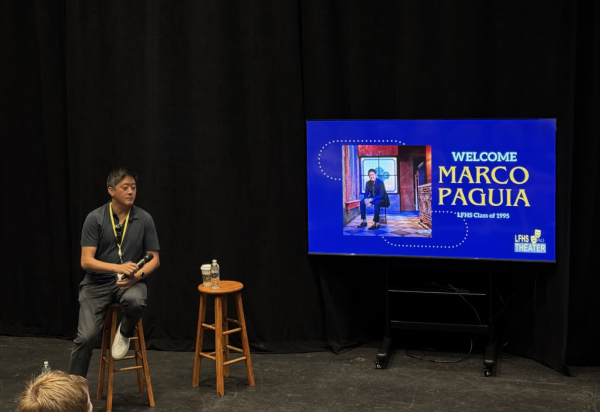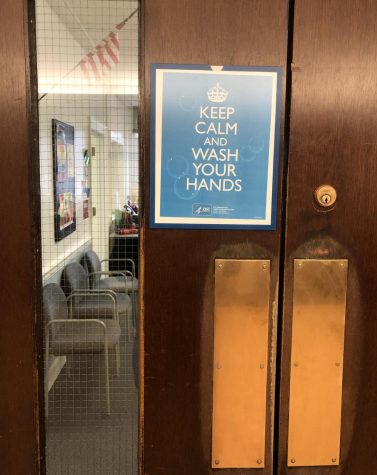The Iran Resolution: A Good First Step
Congress is the beating heart of our democracy. It needs to get its act together.
The last several years have seen a dramatic expansion of presidential power in the face of an increasingly dysfunctional Congress. The War Powers legislation passed by the House of Representatives and more recently the Senate represents a good start toward curtailing the powers of the presidency, but it is nowhere near enough.
The hubbub stems from President Trump’s January decision to use a drone to assassinate Iranian Major General Qassem Soleimani — the second most powerful man in the country, behind only Supreme Leader Ali Khamenei —without consulting Congress. Regardless of what one thinks of Iran, the act is analogous to a foreign power assassinating Speaker Pelosi or Vice President Pence.
This was done without any serious provocation; Iran’s decision to shoot down a drone that may or may not have violated its airspace may have warranted some retaliation, but Trump’s decision to kill a top-level cabinet official is like blowing up a mean neighbor when they shoot an annoying model airplane out of the sky. Yes, Mr Soleimani was no friend of the United States; but we are not about to saunter forth and kill the serial human rights abuser known as Chinese President Xi Jinping. The United States last killed a foreign leader of Mr Soleimani’s stature when American fighters downed the plane carrying Imperial Japanese Navy Admiral Isoroku Yamamoto, the architect of the attack on Pearl Harbor. This did not set a precedent for Mr Soleimani’s assassination, as the US is not currently at war with Iran but was embroiled in the Pacific War during the killing of Mr Yamamoto.
No matter how much we may have hated him, no matter how much we may have cheered his downfall, Mr Soleimani’s assassination was unprecedented and unwarranted. It was also undertaken without any consideration of the United States Congress.
Article I of the Constitution gives Congress the exclusive power to declare war. An originalist, conservative reading of the relevant clause says that the president cannot make war without formal congressional authorization. A progressive, instrumentalist reading says that the president can undertake limited action to defend the United States on their own, but Congress must be informed and can revoke warmaking authority at any time. There is only one reading that says the president can ignore Congress altogether: it’s called tyranny.
This is an especially dramatic manifestation of a long trend in American politics: the centralization of power in the office of the president. Teddy Roosevelt intervened in Panama to secure a more favorable treaty granting the US the right to build a canal. Harry Truman brought the US into the Korean War following the Security Council Resolution on Korea but without formal congressional authorization.
Executive power has only grown since, especially in foreign policy. Presidents since Eisenhower have launched coup after coup after coup, none explicitly authorized by Congress. Eisenhower, Kennedy, Johnson, and Nixon pulled America progressively deeper into Vietnam. The NSA engaged in mass surveillance well beyond the bounds of the USA PATRIOT Act and undoubtedly continues to do so. It also conspired to read secret communications of allies, enemies, and neutral parties alike by building weaknesses into the company that produced most of the world’s encryption machines. President Obama committed the United States to the Paris Climate Accords without congressional approval. That brings us up to President Trump, who was impeached for abuse of power and obstruction of Congress.
Much of the blame falls squarely upon Congress itself. The advent of social media and C-SPAN has made a spectacle of the legislature that ought to govern. In committee, in the State of the Union, on the floor — everywhere congresspeople prostrate themselves before the media in the hopes that they might have a viral moment that wins them reelection or launches them into higher office. Thus the institution that provides the legislative framework for our republic has decayed away into yet another reality television show.
It is only natural that Congress gets so little done; most members of Congress are better at self-promotion and partisan hacking than they are at actual compromise or governing.
Yet the governing must go on. And so Congress has ceded increasing legislative authority to the executive; the Code of Federal Regulations has exploded in length by a factor of 20 in the last seven decades. This is curiously similar to the expansion of presidential power since the Eisenhower presidency.
Part of this is natural. The population, economy, and diplomatic weight of the United States of America have all grown dramatically since 1950, so it is understandable that executive power has grown.
But citizenship in a republic is dependent upon representation and compromise. The executive engages in some compromise, but it does not compare to the paragon of reasonable negotiation that is an elected legislature. All nations have executives; only democracies have legislatures. The independence and authority of Congress is what sets the United States apart from the dictatorships and fiefdoms of the world.
Now, however, Congress is full of sycophants and morons. Republicans are blind, deaf, imbecilic in their loyalty to the president; they are acting like lemmings, not human beings endowed with the miracle of sapience. Democrats are little better; they shred speeches and draft legislation that has no hope of passage, stubbornly resisting for the sake of resisting, behaving like the donkey that is their standard.
A two-party system is not a healthy thing; it lends itself to extremism, gridlock, and tyranny of the majority. Having many parties would be better; it would force coalition-building and greater compromise.
But that is not the question on the table. True reform of our electoral system would take immense sums of time and political energy. Surely in the interim, however, Congress can reassert itself over an executive branch that has grown increasingly powerful and unaccountable.
Surely conservatives would be all too willing to stand by the Constitution and its strict limits on executive power. Surely liberals would be all too willing to uphold Congress as the lifeblood of our democracy. Surely both parties would agree that the flip-flopping from Democrat to Republican and back again only divides the country further.
I have no solutions; I have only criticisms. Yet this is the necessary first step in civil discourse: we identify a problem, debate until we have consensus on a solution, and elect representatives who will enact that solution into law.
Democracy is not perfect. It’s slow and it forces us to step outside our comfort zones and talk politics with our friends, families, and fellow citizens.
But in this brave new world of ours, where executive power is concentrated as never before, consensus is well worth the wait. Compromise is worth fighting for.
Your donation will support the student journalists of Lake Forest High School. Your contribution will allow us to purchase equipment and cover our annual website hosting costs.

Casey Murray is a senior at Lake Forest High School, where he participates in many endeavors, such as Model UN and Latin Club. He enjoys meteor showers,...













Anonymous • Feb 27, 2020 at 2:20 pm
I could not agree more! Great article!